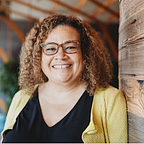Fintech Blueprint Interviews Sankaet Pathak
The Fintech Blueprint podcast recently interviewed Synapse’s CEO and co-founder, Sankaet Pathak, exploring his pathway from a student and immigrant having difficulty opening a bank account and getting a credit card to leading a financial infrastructure company.
The interview covered a wide range of topics following Sankaet’s journey into the fintech sector and how he found the value of APIs and modular architecture.
They continued to explore the global demand for the US dollar, Synapse key metrics, aligning revenue and costs in the fintech space, market dynamics, COVID, and the regulatory landscape.
Here are some highlights from the interview:
- “…the infrastructure didn’t exist where you could easily do KYC, easily create a checking account, easily create a savings account at a bank, easily issue a card, etc., and thus it started the journey with Synapse.”
- “Buyer adoption was limited, and instead of building this P2P like B2B type with dentists and rental properties, etc., we should just give our APIs to some of the software companies and let them embed our infrastructure within those applications, and what they’re going to put in the hands of the dentists and whoever would have so much more power than just a store valued payment processing.”
- “Taking that approach which is building this like modular API and then building applications on top of it, really made it obvious for me the value of embedded finance.”
- “I have started to believe over the course of the past few years that a cash management account is far superior than a demand deposit account, and the whole reason for that is you can put money in different banks so you can have limited exposure.”
- “One of the products we provide on top of our CMA is called Global Cash which enables people who do not live in the US to be able to hold investments in USD, spend in USD … I personally believe people will care less about where they’re born and thus which currency they hold and they will pick the most stable currency that has the highest commerce on it and right now that happens to be USD.”
Listen to the podcast here.
